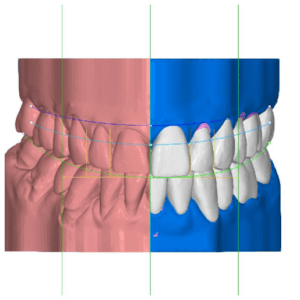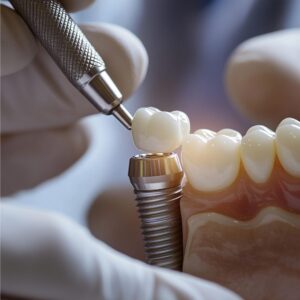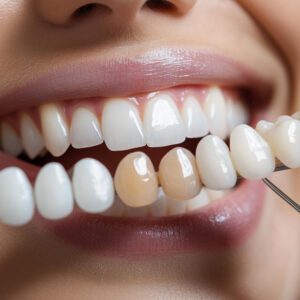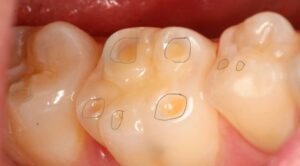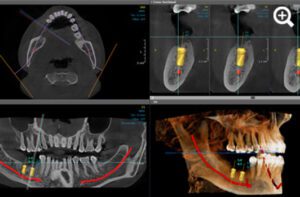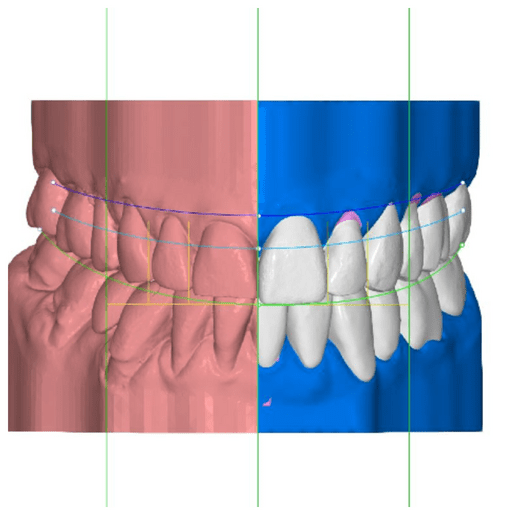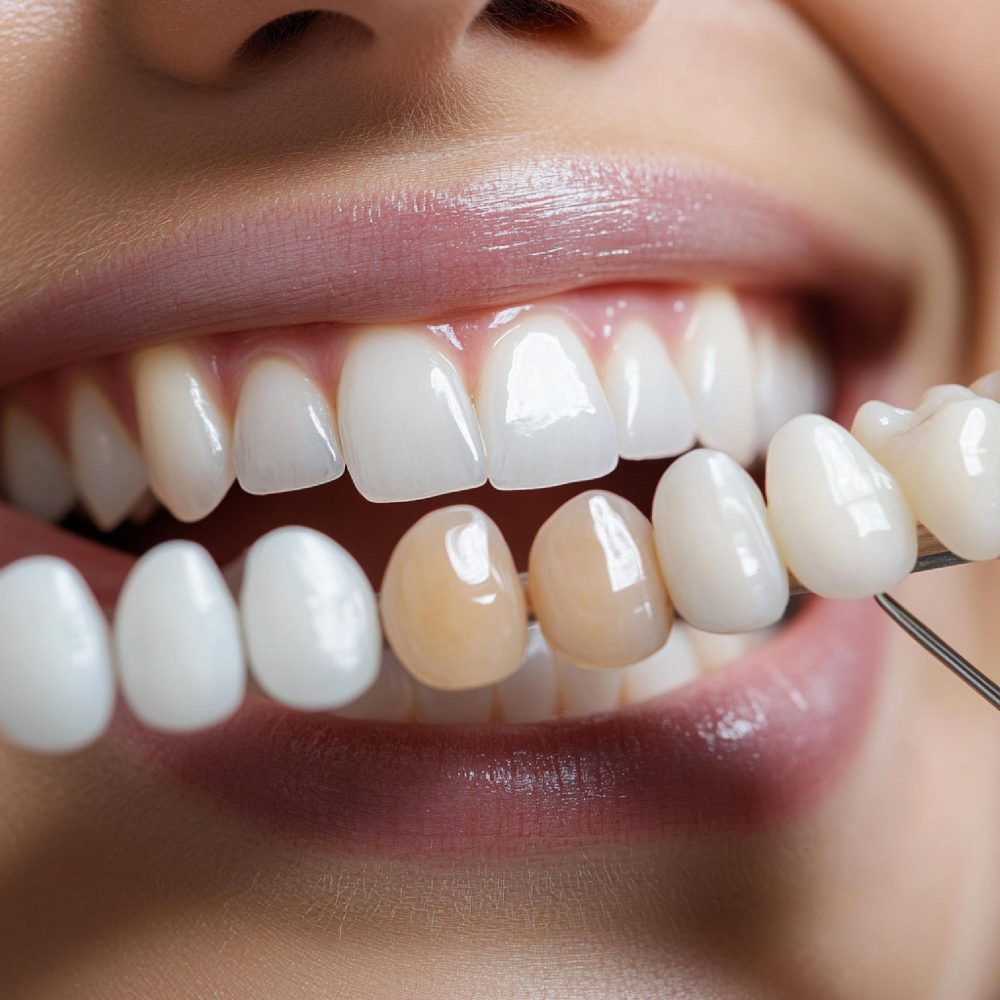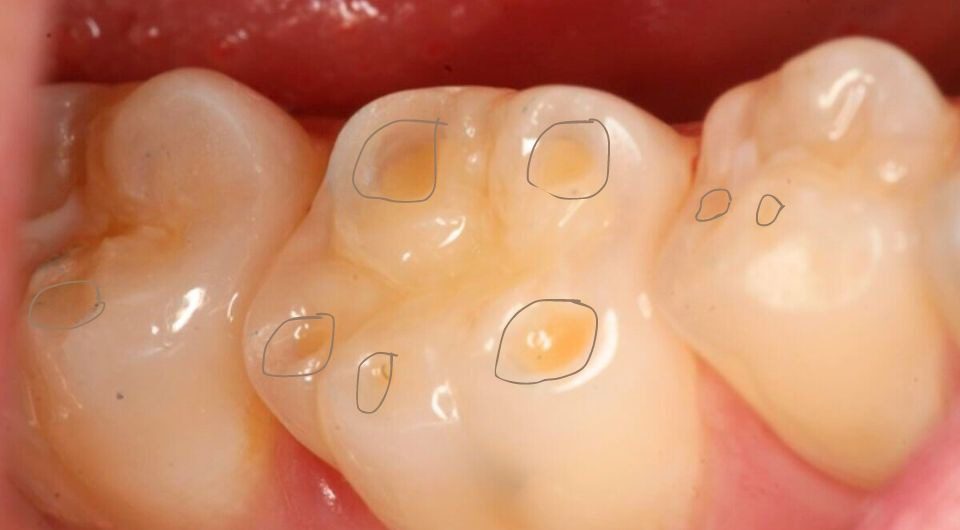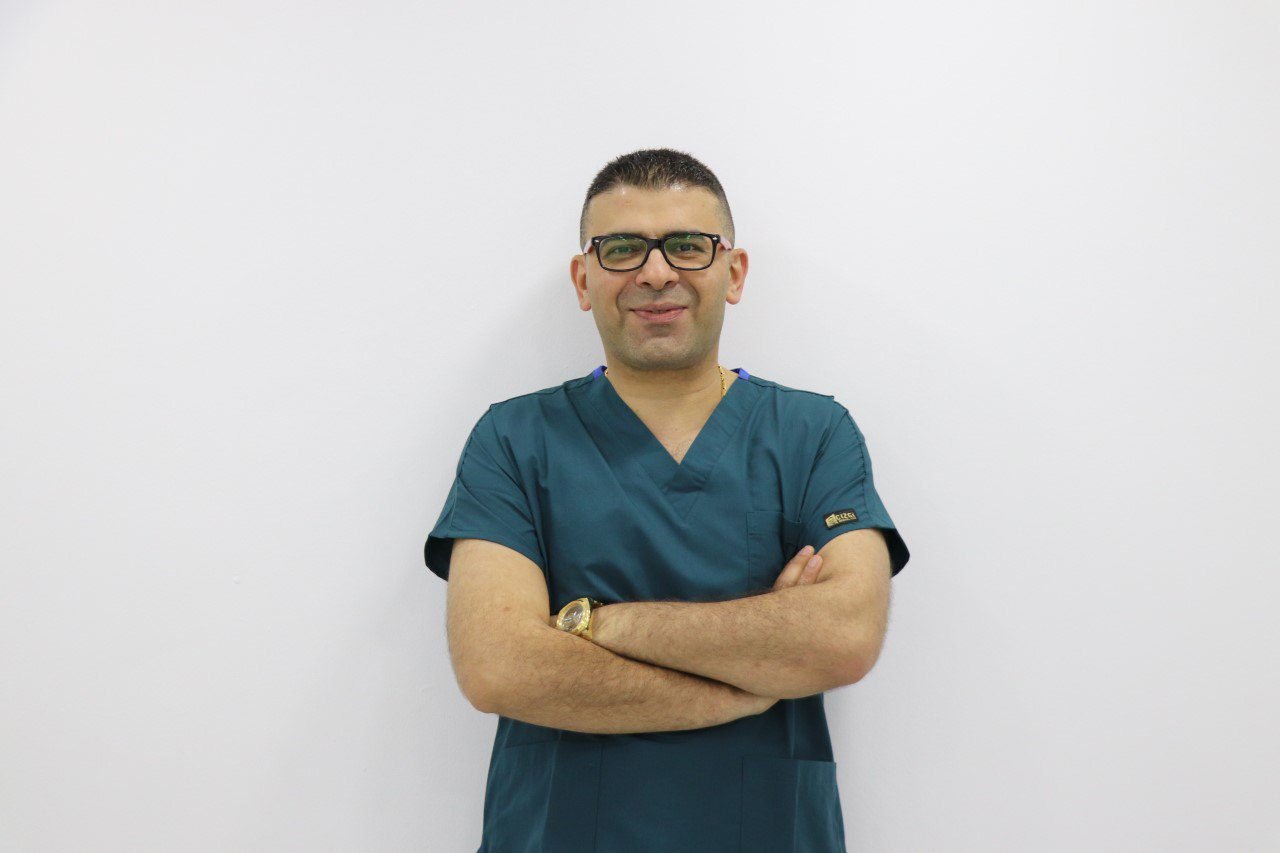Introduction to Pregnancy and Dental Health
Pregnancy is a period marked by significant physical and hormonal changes that can influence various aspects of a woman’s health, one of which is dental health. As the body undergoes these transformations, hormonal fluctuations, particularly the increase in progesterone and estrogen levels, can have a profound effect on oral health. It is essential for expectant mothers to be aware of how these changes could potentially lead to dental issues, such as gum disease, tooth erosion, and heightened sensitivity.
Research indicates that during pregnancy, the body’s immune response alters, which can make some women more susceptible to periodontal diseases. Causal links have been established between poor oral health and complications such as preterm birth and low birth weight. As a result, maintaining good oral hygiene becomes critically important. Regular dental check-ups are advised to monitor any changes that may arise during this time. Delaying dental care can not only affect the mother’s health but also the developing fetus.
In conclusion, understanding the implications of pregnancy on dental health can empower women to take proactive steps in maintaining oral hygiene. Awareness and education during this critical time can pave the way for healthier smiles for both mothers and their children.
Common Dental Issues During Pregnancy
Pregnancy brings about significant hormonal changes in the body, which can greatly influence dental health. One of the most prevalent dental issues encountered during this period is gingivitis. This condition is characterized by inflammation of the gums, often leading to tenderness, redness, and swelling. The hormonal fluctuations experienced during pregnancy can increase blood flow to the gums, making them more susceptible to plaque accumulation and bacterial growth. Women may notice that their gums bleed more easily when brushing or flossing; recognizing these symptoms early can help in managing the condition effectively.
Another concern that pregnant individuals might face is the appearance of pregnancy tumors, also referred to as pyogenic granulomas. These noncancerous growths typically develop in response to plaque buildup or hormonal changes and often appear as red, swollen lesions that may bleed easily. While they are generally harmless and often resolve post-pregnancy, they can cause discomfort and interfere with oral hygiene practices. Addressing plaque control is crucial to reduce the probability of developing such tumors.
Tooth decay is yet another common issue that can affect individuals during pregnancy. Changes in dietary habits, such as cravings for sugary snacks and beverages, can increase the risk of cavities. Additionally, some women may experience nausea and vomiting, resulting in acid exposure to teeth, which can erode enamel over time. This combination of dietary changes and acid exposure creates a perfect storm for tooth decay. Pregnant individuals are advised to maintain a balanced diet rich in vitamins and minerals, practice consistent oral hygiene, and consult with dental professionals to effectively mitigate these risks and enhance dental health. Regular dental check-ups during pregnancy can provide necessary insights into maintaining a healthy oral environment.
Hormonal Changes and Their Dental Implications
During pregnancy, women experience significant hormonal fluctuations, primarily characterized by increased levels of estrogen and progesterone. These hormonal changes can have profound effects on dental health, particularly in the condition of the gums. The heightened levels of these hormones lead to an increase in blood flow to the gum tissues, resulting in greater sensitivity and a predisposition to inflammation.
This increased sensitivity often manifests as pregnancy gingivitis, a condition where the gums become swollen, red, and may bleed during brushing or flossing. As estrogen and progesterone influence the immune response, pregnant individuals may find it more challenging to combat bacterial buildup in the mouth, thus heightening the risk of periodontal disease. The gums, under the influence of these hormones, may react more aggressively to plaque accumulation, leading to increased discomfort and oral complications.
Furthermore, these hormonal changes can alter saliva production and its composition, potentially impacting the mouth’s ability to neutralize acids and wash away food particles. As a result, pregnant individuals may experience an elevated risk of cavities. The cravings often associated with pregnancy, leading to increased consumption of sugary snacks, can exacerbate this risk, delivering a double blow to oral health.
It is essential for pregnant individuals to prioritize oral hygiene during this pivotal time. Regular dental check-ups are recommended to monitor any changes in oral health and to address issues proactively. Implementing a thorough daily dental care routine, which includes brushing twice daily with fluoride toothpaste and flossing, can help mitigate the negative effects created by hormonal changes. Understanding the implications of these physiological shifts is key to maintaining optimal dental health throughout pregnancy.
Nutrition and Dental Health During Pregnancy
During pregnancy, maintaining proper nutrition is crucial for overall health, including the health of teeth and gums. The body undergoes numerous changes, necessitating additional nutrients to support both the mother and the developing fetus. A well-balanced diet is vital in preventing dental issues such as gingivitis and cavities, which can be exacerbated by hormonal fluctuations during this period.
Calcium is one of the most important nutrients for pregnant women, as it is essential for the development of the baby’s bones and teeth. This mineral also plays a protective role for the mother’s dental health, as adequate calcium intake can help prevent bone loss. Dairy products like milk, cheese, and yogurt are excellent sources of calcium. For those who are lactose intolerant or prefer non-dairy options, alternatives fortified with calcium, such as almond or soy milk, can also be beneficial.
Vitamin D works synergistically with calcium, promoting its absorption and utilization in the body. During pregnancy, it is critical to ensure enough vitamin D intake to support both maternal and fetal health. Foods rich in vitamin D include fatty fish, egg yolks, and fortified products like cereal and orange juice. Additionally, moderate sun exposure can help the body synthesize vitamin D effectively.
Fluoride is another essential element that contributes to dental health. Although many dental products contain fluoride, it can also be found in tea and fish, as well as in fluoridated water supplies. Ensuring adequate fluoride intake during pregnancy can help strengthen the developing teeth of the fetus, reducing the risk of cavities later on.
For optimal dental health, pregnant women should also focus on a balanced diet that includes a variety of fruits, vegetables, whole grains, and lean proteins. Regular check-ups with a dental professional are crucial during this time to monitor any changes and address any concerns promptly. Prioritizing nutrition can significantly influence both maternal and fetal dental health.
Practical Tips for Maintaining Dental Health in Pregnancy
Maintaining dental health during pregnancy is vital, as hormonal changes can increase the risk of gum disease and cavities. Pregnant individuals should adopt effective oral hygiene practices to safeguard their dental health and ensure the well-being of their developing baby. One essential practice is proper brushing technique. It is recommended to brush at least twice a day using a soft-bristled toothbrush and fluoride toothpaste. The brushing method should involve gentle circular motions to effectively clean both the teeth and gums without causing irritation.
Flossing is another critical component of daily oral care, as it helps remove plaque and food particles stuck between teeth that a toothbrush cannot reach. Pregnant individuals should aim to floss at least once daily, ideally at night before brushing, to maintain optimal oral health. Additionally, considering the increased susceptibility to gum inflammation, it is imperative to pay close attention to the gum line while flossing.
Regular dental check-ups are also important during pregnancy. These visits allow dental professionals to monitor any changes in oral health and address concerns such as gum sensitivity or tooth decay early on. Most dental treatments are safe during pregnancy, but it is crucial to inform the dentist about the pregnancy to ensure appropriate care is provided.
For those experiencing morning sickness, managing dental hygiene can be challenging. Rinsing the mouth with water or a baking soda solution after vomiting can help neutralize acids and protect tooth enamel. Chewing sugar-free gum can stimulate saliva flow, which is beneficial for maintaining oral health. Staying hydrated and consuming a balanced diet rich in vitamins and minerals also supports both dental and overall health during pregnancy.
Addressing Dental Issues Effectively During Pregnancy
During pregnancy, it is crucial for expectant mothers to prioritize their dental health, as hormonal changes can exacerbate existing dental issues or create new challenges. If a pregnant individual experiences dental problems, it is essential to address these concerns promptly to ensure both maternal and fetal well-being. The first step is to consult with a healthcare provider or a dentist experienced in treating pregnant patients. They can offer personalized recommendations based on the individual’s specific health needs and pregnancy stage.
When visiting the dentist, it is important to communicate clearly about any dental issues encountered, including symptoms such as tooth pain, swelling, or bleeding gums. Pregnancy-related conditions, such as pregnancy gingivitis or periodontal disease, should be disclosed to the dental professional, as they may influence the treatment approach taken. Additionally, providing a comprehensive medical history, including any medications being taken, will help the dentist make informed decisions regarding the best course of action.
Many dental procedures can be performed safely during pregnancy, particularly in the second trimester, which is generally considered the safest time for both treatment and routine care. However, elective procedures should be postponed until after childbirth unless they are necessary for the health of the mother or the fetus. In situations requiring immediate attention, pain management strategies should be discussed, as certain medications may not be suitable for pregnant individuals.
To maintain optimal oral health during pregnancy, it is advisable to adhere to a consistent dental hygiene regimen. This includes regular brushing with fluoride toothpaste, flossing daily, and using an antimicrobial mouth rinse if recommended by the dentist. Regular dental check-ups are also essential, as these appointments can help catch and treat problems early, minimizing complications for both mother and baby.
The Importance of Regular Dental Visits
Regular dental visits play a crucial role in maintaining optimal oral health, particularly for pregnant individuals. Before conception, during pregnancy, and after childbirth, it is essential to continue routine dental check-ups and cleanings. These visits not only help in the prevention of dental diseases but also in the early detection and management of any oral issues that may arise due to hormonal changes during pregnancy.
During pregnancy, hormonal fluctuations can lead to an increase in oral health issues, such as gingivitis and tooth decay. As such, it is vital to inform your dentist about your pregnancy status at all appointments. This awareness allows dental professionals to tailor their approach to your specific needs. For instance, certain procedures may be deferred, while others may become more crucial due to the changed physiological conditions associated with pregnancy.
Patients often express concerns regarding the safety of undergoing dental procedures while pregnant. It is important to understand that many necessary dental treatments are safe and even recommended during pregnancy. Professional cleanings, cavity treatments, and other essential dental care can generally be performed without significant risk to the mother or the developing fetus. Dentists are trained to assess the timing and necessity of treatments, balancing oral health needs with pregnancy considerations.
Moreover, dental visits during pregnancy provide an opportunity for healthcare professionals to educate expectant mothers about maintaining their oral hygiene. This includes advice on proper brushing and flossing techniques, dietary recommendations to minimize cravings for sugary foods, and tips for managing common pregnancy-related oral conditions. Overall, regular dental check-ups are integral not just for oral health, but also for fostering a healthy pregnancy journey.
Frequently Asked Questions About Pregnancy and Dental Health
Pregnancy introduces numerous changes to a woman’s body, including significant alterations in dental health. It is essential to address common queries that may arise during this period to ensure optimal oral hygiene and well-being. One frequently asked question pertains to the risk factors associated with dental issues during pregnancy. Hormonal fluctuations can lead to heightened sensitivity in the gums, which may result in conditions such as pregnancy gingivitis. Women may also experience cravings that could lead to increased consumption of sugary foods, further heightening the risk of cavities and other dental problems.
Another common concern is the safety of dental treatments during pregnancy. It is widely recognized that preventive dental care, such as cleanings and check-ups, should not be postponed. Most dental procedures, including fillings and extractions, can be safely performed during the second trimester, which is often considered the most stable phase of pregnancy. However, it is advisable to inform dental professionals about the pregnancy status, as they may need to adjust treatment plans accordingly. Moreover, necessary X-rays can be performed with proper shielding to ensure safety for both the mother and the fetus.
Dental clinics can better cater to the needs of pregnant patients by ensuring that their staff is well-trained on the particular dental issues that may arise during this time. Providing educational resources and maintaining an open line of communication is crucial. Pregnant patients should be empowered with information about the importance of maintaining oral health during pregnancy and how to manage symptoms like dry mouth or nausea, which are common during this period. Overall, fostering a supportive and informed environment in dental clinics can greatly enhance the care that expectant mothers receive.
Recommended Dental Clinics in Turkey
Turkey has established itself as a premier destination for dental care, particularly for pregnant women who require specialized attention during this delicate period. Among numerous clinics offering comprehensive services, three stand out for their exceptional care, highly qualified staff, and patient-friendly environments.
One of the leading clinics is Dr. Abdulrahman Ozturk’s clinic, renowned for its focus on maternal dental care. Dr. Ozturk is a highly experienced dentist with extensive knowledge in managing oral health issues in pregnant women. His clinic prioritizes preventive care, ensuring that women receive tailored treatments that consider the hormonal changes affecting their dental health. This clinic is equipped with the latest technology, providing procedures that are both safe and effective, thus reducing anxiety and discomfort for expectant mothers.
Another reputable choice is the Dentplus Clinic. This clinic is distinguished by its exceptional patient care and a full range of dental services specifically designed for pregnant women. Their staff comprises experienced dentists who are skilled in addressing common dental problems during pregnancy, such as gum sensitivity and tooth decay. The clinic promotes a safe environment with a strong emphasis on patient education, helping women understand the importance of maintaining oral health throughout pregnancy.
Finally, the Taksim Clinic is well-known for its comprehensive approach to dental health, catering specifically to the needs of pregnant patients. With a team of specialists, they offer a variety of treatments ranging from routine check-ups to more elaborate procedures, ensuring that all treatments are carried out judiciously during pregnancy. Their commitment to patient safety and comfort has garnered them a reputation as one of the top facilities for maternity dental care in Turkey.
Choosing the right dental clinic during pregnancy is essential for maintaining optimal oral health. These highly regarded clinics demonstrate the quality of care available in Turkey, ensuring that expectant mothers receive the best possible dental treatments throughout their pregnancy.


